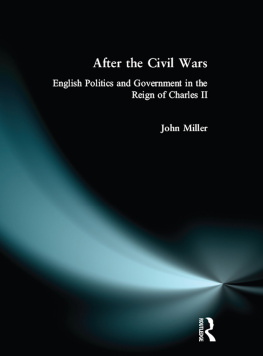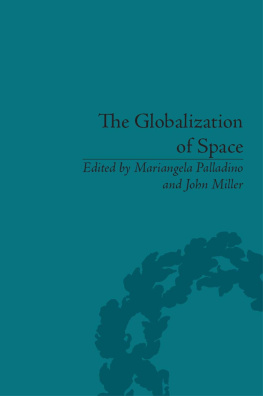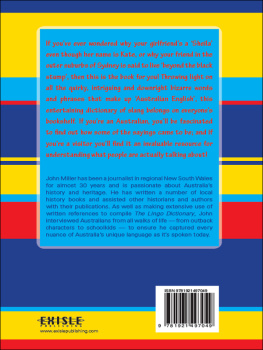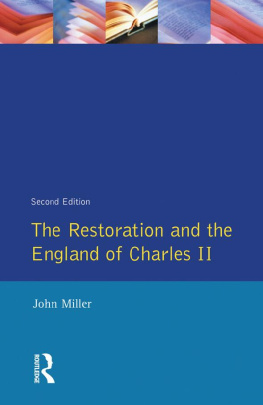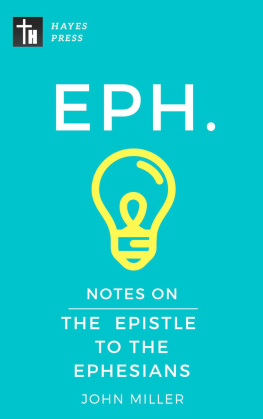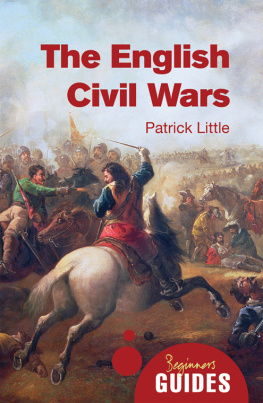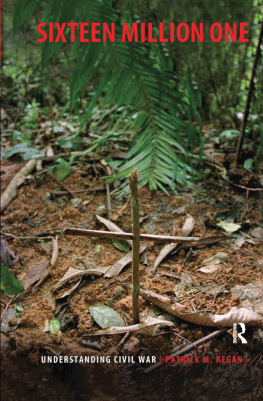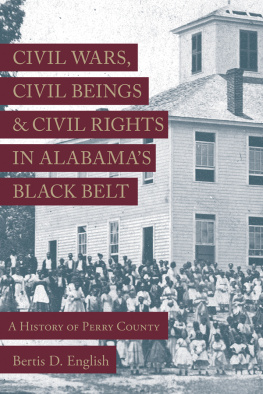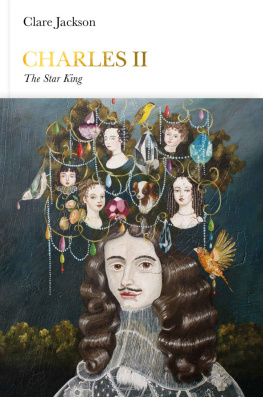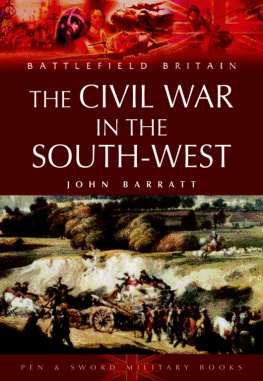In memory of Ken Haley and John Kenyon
First published 2000 by
Pearson Education Limited
Published 2014 by Routledge
2 Park Square, Milton Park, Abingdon, Oxon OX14 4RN
711 Third Avenue, New York, NY, 10017, USA
Routledge is an imprint of the Taylor & Francis Group, an informa business
Pearson Education 2000
The right of John Miller to be identified as author of this Work has been asserted by him in accordance with the Copyright, Designs and Patents Act 1988.
All rights reserved; no part of this publication may be reproduced, stored in a retrieval system, or transmitted in any form or by any means, electronic, mechanical, photocopying, recording, or otherwise without either the prior written permission of the Publishers or a licence permitting restricted copying in the United Kingdom issued by the Copyright Licensing Agency Ltd., 90 Tottenham Court Road, London W1P OLP.
British Library Cataloguing-in-Publication Data
A catalogue record for this book is available from the British Library
Library of Congress Cataloging-in-Publication Data
Miller, John, 1946
After the Civil Wars : government in the reign of Charles II / John Miller.
p. cm.
Includes bibliographical references (p. ) and index.
1. Great BritainPolitics and government16601688. 2. Great
BritainHistoryCharles II, 16601685. I. Title.
DA445.M44 2000
941.066dc21
00042426
ISBN 13: 978-0-582-29898-9 (pbk)
Set in 35 in 11/12pt Adobe Garamond
Produced by Pearson Education Asia Pte Ltd.
This book has been a long time in gestation. Although I have spent much of the last thirty years working on the politics of Restoration England, my focus has mostly been on high politics: royal policy-making, the workings of the royal court, the relationship of king and Parliament. Although I have been aware of the local reactions real and perceived to what happened at the centre, these have usually played only a minor, peripheral part in my published work. I have, however, become more and more aware that this left an imbalance in my understanding, a large void that needed to be filled. That awareness was fuelled in part by the work of other scholars of early modern England: political historians who are learning to place politics in a much wider social and cultural context and social historians who are placing increasing stress on the politics of social interaction. It also owes much to experience, not only of research in an ever-widening range of archives, but also of teaching organizing ideas and trying to explain them, as well as learning from students awkward questions and different perspectives. Since the early 1980s I have been accumulating material on towns, elections, riots and other topics, in the hope that some day I would be able to write a full-scale study of how Restoration politics worked. When in 199495 I enjoyed my first ever year of sabbatical leave, I began to reorder my material and to assess what else I needed to read. I originally intended to include several case study chapters, but having written the first (a substantial piece on Norfolk) I decided instead to integrate the material into the main body of the work. In addition, having intended the book to be essentially thematic, partly to avoid the risk of going again over familiar ground, I came to appreciate the crucial importance of change over time. As a result, the chronological chapters are now much more substantial than I originally planned, but I have been careful to focus on the local dimension and especially the theme of political and religious division sketching in only as much of the high political background as is necessary to understand what is going on. At the same time, the many years I spent studying the course of political events have proved invaluable in picking up nuances, making connections and (not least) knowing who people are. Without that experience, I could not have written this book.
Two final points. First, this is unshamedly a work on English (and Welsh) history. The political and social structures of Scotland and Ireland were very different from those of England, and their relationship with England added further complexities. Had I extended my focus to embrace all of the British Isles, this book would have been much longer and much less coherent. Secondly, I decided at an early stage not to carry the story through to 1688. It seems to me that there is a certain coherence, a symmetry about Charles IIs reign. For much of the time the issues and divisions of the civil wars remained relevant and at the beginning and end of the reign they were crucial; the Exclusion Crisis seemed to many a re-run of 164042. By contrast, James II radically altered political alignments and the context and content of political debate. His reign undoubtedly deserves further study, but not here.
In the course of my researches I have incurred many debts of thanks. I am most grateful to the Duke of Beaufort, the Duke of Norfolk, the Marquess Townshend, the Arundell family and John Montagu for permission to read manuscripts in their possession and to the Master and Fellows of Magdalene College, Cambridge, for access to the Pepys Library. Having worked in many libraries and archives, I have been struck by the courtesy and kindness shown by their staff in what for many are difficult times, but I should like to single out the staff of Duke Humfreys Library at the Bodleian, the British Library Manuscripts Department Students Room, Durham University Library, Norfolk Record Office, QMW Library and (last, but not least) the Institute of Historical Research, which is in many ways in a league of its own as a scholarly resource and a centre of historical excellence. I am very grateful to the many historians, young and older, who attend the Institutes Seminar in Seventeenth-Century British History. The seminar papers and the discussions afterwards, formal and informal, are a constant source of stimulation and information. The seminar makes it much easier to keep in touch with the work being done on the period by a number of impressive younger historians on both sides of the Atlantic, whose influence on this book is very apparent: Perry Gauci, Mark Goldie, Paul Halliday, Mark Knights, Steve Pincus and Jonathan Scott, to name but a few. The seminar also benefits greatly from the contribution of members of the staff of the History of Parliament. If I have tended to stress the importance of conviviality in this book, that too may owe something to the seminar. I should also like to remark that, while there is plenty of lively historical debate among historians of the Restoration period, it is almost invariably courteous and good humoured. On a more individual level, I am most grateful to James Jones for reading and commenting on my draft chapter on Norfolk. Many years ago, shortly after he examined my Ph.D., I mentioned that I thought I might try to investigate the continuities, or otherwise, between the two sides in the civil wars and the parties in the Exclusion Crisis. He dissuaded me and I can see now that he was right. I have also learned a lot often much more than they realise from many of my students and especially Beverly Adams and Bob Birmingham, to whom many thanks. As usual, my family and particularly my wife have had to put up with my absence on research trips and my reluctance (when present) to be distracted from writing; I am most grateful for their patience and forbearance. My final debt of thanks is recorded in the dedication, to two fine scholars, alas no longer with us, who worked on this period when it was less fashionable than it is now and who gave me every assistance and encouragement over many years. Whatever qualities I may possess as a historian, I owe in considerable part to them.

